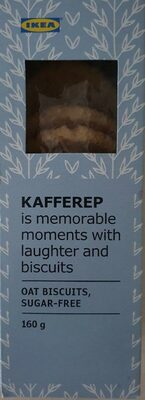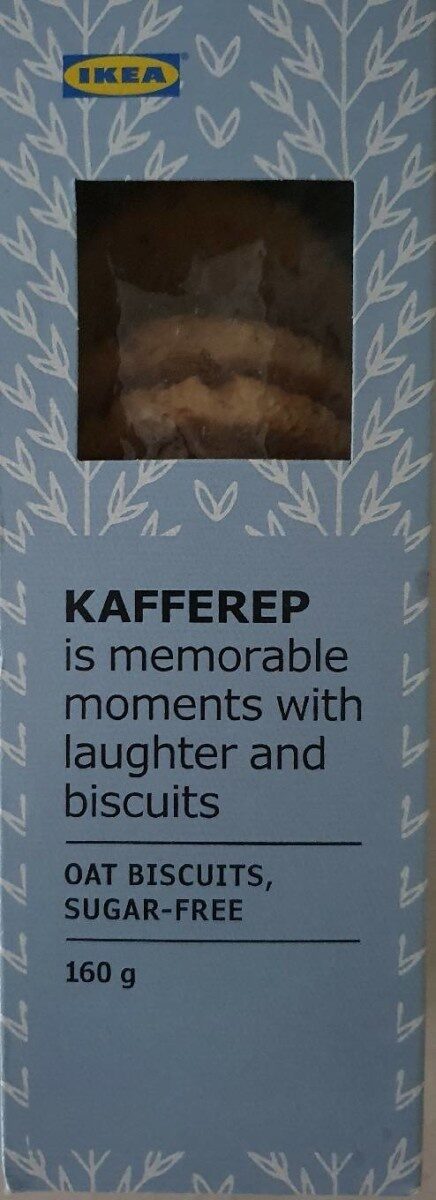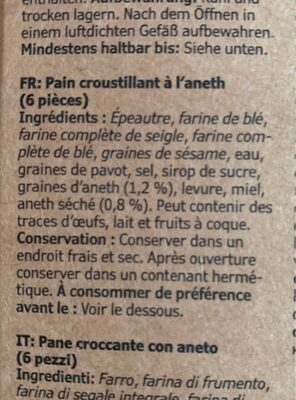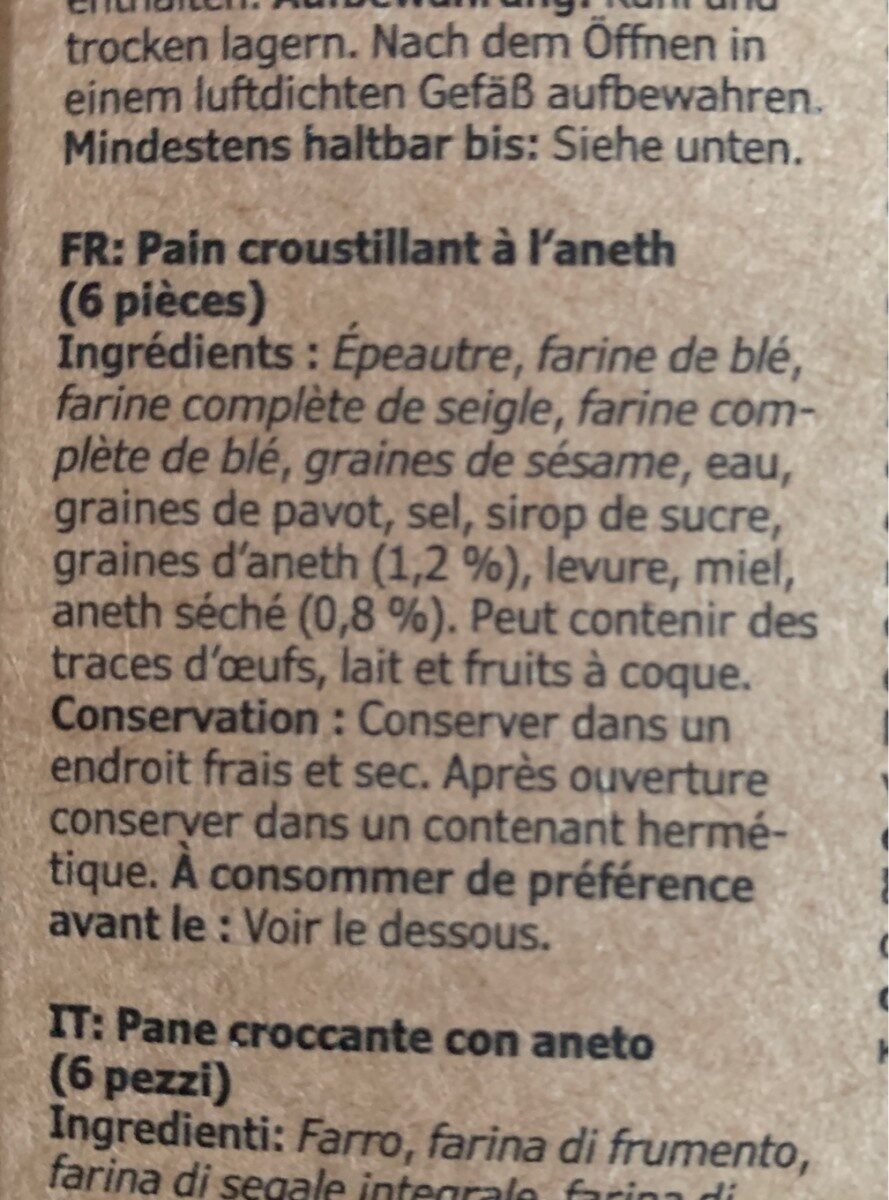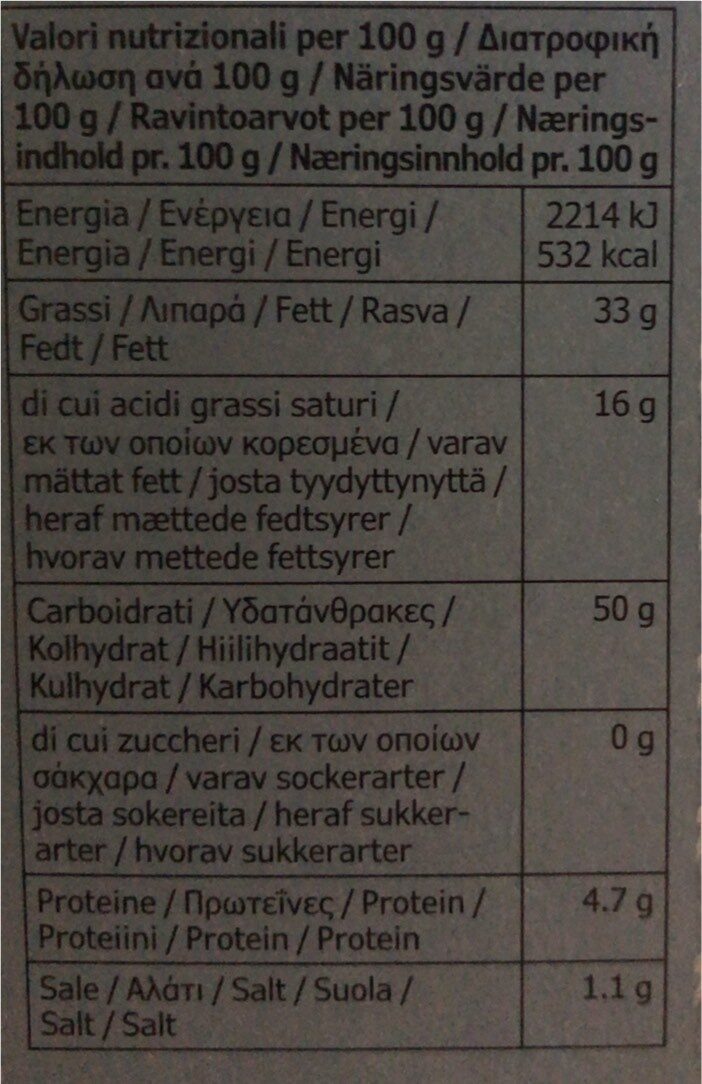KAFFEREP Oat sugar-free - Ikea - 160g
This product page is not complete. You can help to complete it by editing it and adding more data from the photos we have, or by taking more photos using the app for Android or iPhone/iPad. Thank you!
×
Barcode: 1903749190003 (EAN / EAN-13)
Common name: Biscuits à base d'avoine, sans sucre avec édulcorant
Quantity: 160g
Packaging: Cardboard, fr:Point vert, Non-corrugated cardboard
Brands: Ikea
Categories: Snacks, Sweet snacks, Biscuits and cakes, Biscuits, Oatmeal cookies
Labels, certifications, awards: Low or no sugar, No sugar
Manufacturing or processing places: Sweden
Stores: Ikea
Matching with your preferences
Environment
Carbon footprint
Packaging
Transportation
Threatened species
Report a problem
Data sources
Product added on by kiliweb
Last edit of product page on by .
Product page also edited by aleene, bathorypeter, desan, openfoodfacts-contributors, sebleouf, teolemon, yuka.V0s4bE1xY2w5cWxidk13aytpSEUzL0JReXJPRGVuN29jZnNmSVE9PQ, yuka.V1BCUkxia3Mvc2s0bGNVY3dTTDYyOHd1NXJhemZ6dXVFZXdCSVE9PQ, yuka.VDdFZUVhNVJ2dnRRdmNZLzl6RGw1ZE1sN0p1dFhtRzlCdlFJSWc9PQ, yuka.WDdoUktKVmRsK2s0aTgwVS9RUEg4ZDkvMjVyeGVWem1ldUExSVE9PQ, yuka.ZXZ3bUlhNWMvNk1tb1AwYTIwdU0ydThrOWMrblhtQ1ROTFVwSVE9PQ, yuka.sY2b0xO6T85zoF3NwEKvlhJ3ScjdohmaKhfVqEKxwPiKD663cNpp7dGkbao, yuka.sY2b0xO6T85zoF3NwEKvllJeb9TQjRnYbDDttXbT1NC0d6b1OuNM4oTEEqs.
